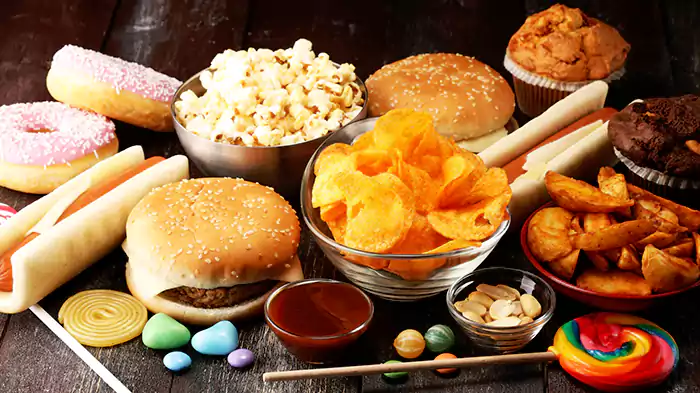What Happens to Your Body When You Eat Fewer Ultra-Processed Foods
Ultra-processed foods make up nearly 60% of the average American diet, but limiting these foods even for a short time can have serious health benefits.1
A 2024 study showed that the participants who cut their ultra-processed food intake by half saw significant weight loss in just eight weeks. Despite a challenging food environment, resources like meal planning sessions helped the participants make meaningful changes in their diet, according to the researchers.1
What Are Ultra-Processed Foods?
Ultra-processed foods are usually packed with sugar, salt, fat, and additives that you can’t find in a home kitchen. These include sugary drinks, fast food, and packaged snacks.2
Research shows they can disrupt the gut microbiome, spike blood sugar, and raise the risk for conditions like obesity, diabetes, and heart disease.3
How Does Limiting Ultra-Processed Foods Benefit Your Health?
Cutting back on ultra-processed foods may support weight loss because these snacks can disrupt your body’s natural hunger cues.
“You’re likely to have a better sense of your satiety when you cut these out,” said Meghan Garcia-Webb, MD, a triple-board-certified doctor in internal, lifestyle, and obesity medicine at Beth Israel Deaconess Medical Center.
“You’re also less likely to crave additional ultra-processed foods,” she added.
Reducing ultra-processed foods also limits your exposure to artificial additives.
In addition, scaling back on ultra-processed foods can also help stabilize blood sugar, reduce bloating, and lower the risk of chronic conditions, according to Dasgupta.
۵ Tips to Limit Ultra-Processed Foods
One major takeaway from the research is that you don’t have to overhaul your diet overnight to see results, said Dasgupta.
Here are five tips to get you started:
1. Cook at home more often: Preparing your own meals gives you control over the ingredients and helps you swerve ultra-processed options like frozen dinners or fast food.
2. Plan meals: Planning meals ahead of time can stop you from grabbing ultra-processed foods out of convenience.
3. Check food labels: Look at nutrition labels for added sugars and sodium levels. These are all things to avoid.
4. Prioritize single-ingredient foods: Aim to eat more foods with just one ingredient, such as fruits, vegetables, and whole grains.
5. Opt for whole foods more often: Eat more whole foods, such as fruits, vegetables, and whole grains.





ارسال دیدگاه
مجموع دیدگاهها : 0در انتظار بررسی : 0انتشار یافته : ۰